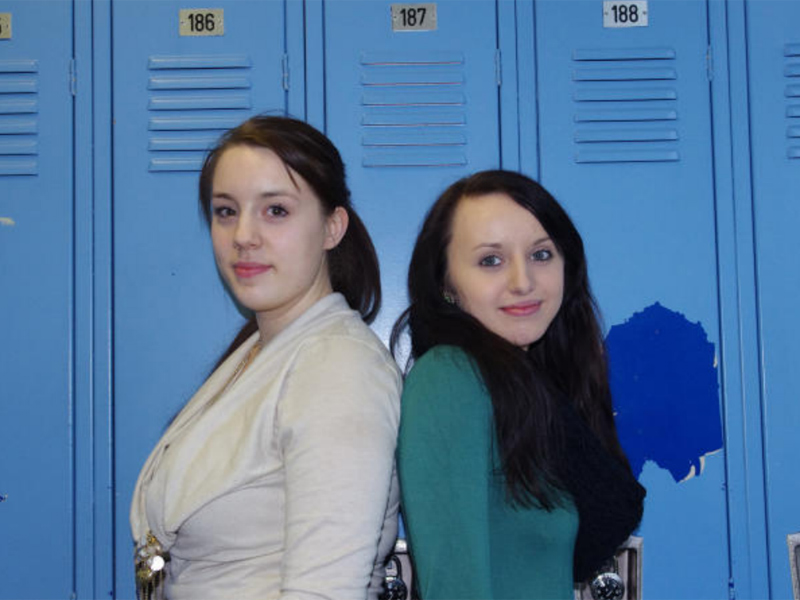Both the German teachers and the 22 students from Bitburg High School, who are spending a day getting to know American school culture, are amazed by the technical equipment. All of them attend the 11th grade English advanced course at the Gymnasium. “We had to fill out a form beforehand with hobbies, favorite movies and music. The American students were then allowed to choose a partner,” says 16-year-old Shirin Hoffmann. Sonja Özyürek (18) wrote letters with her high school partner before the meeting. “We don’t match at all,” she says, laughing, “she listens to country, I listen to rock music.” No matter. Ultimately, the students each want to learn about the other’s world.
“This is a great opportunity. It’s a way for us to learn about another culture firsthand. We hope the exchange will build a bridge, because there are some differences,” says Susanne Debald, an English teacher at Bitburg High School.
That is exactly the goal of the organizer of the action, the Host Nation Council (HNC). HNC head Jan Niewodniczanski says: “We want to give our American friends a home away from home. The easiest way is through youth.” For one day, the German students go to different classes with their respective American partner students. Get to know young people who are shaped by everyday life under the wing of the American military. Who keep changing schools because their parents are transferred – to another city or another country.
Many want to join the military themselves after graduation, like 16-year-old James Finney, who showed up in his uniform to celebrate. That’s what you get when you take military classes as an elective. What is strange for the German exchange students is normal for their high school partners. “Twenty-two percent of the students choose the subject,” says the instructor. At the same time, the ratio between boys and girls is balanced, he says. Says Finney, “We learn how exactly to present the uniform and how to present the rifle properly. And we learn how to shoot.”
There’s a taste of that in class. There, they salute, place the rifle at heel or hold it jaggedly in front of their chest. Everything is done according to precise commands. Instructor: “It’s a good program not for recruiting, but to train good citizens.” After completing the program, which lasts several years, participants are promoted two ranks in the military.
That’s exactly what Jordan Whelan, 19, wants, “Why not? My grandpa was in the military, my dad is there. I want to go there, too. It’s only going to give me advantages.” The school motto for the 200 students is: everyone has access to all teaching resources. No one is disadvantaged. That’s why any instruments are provided in the music subject. Video production with professional equipment, as in the television studio, can also be an elective subject. There, the young media makers produce a daily news program for their classmates. Cooking is also a subject. The smell of spices wafts through the classroom’s large kitchenettes. “The three-year training is recognized in America,” Nicholson says.

